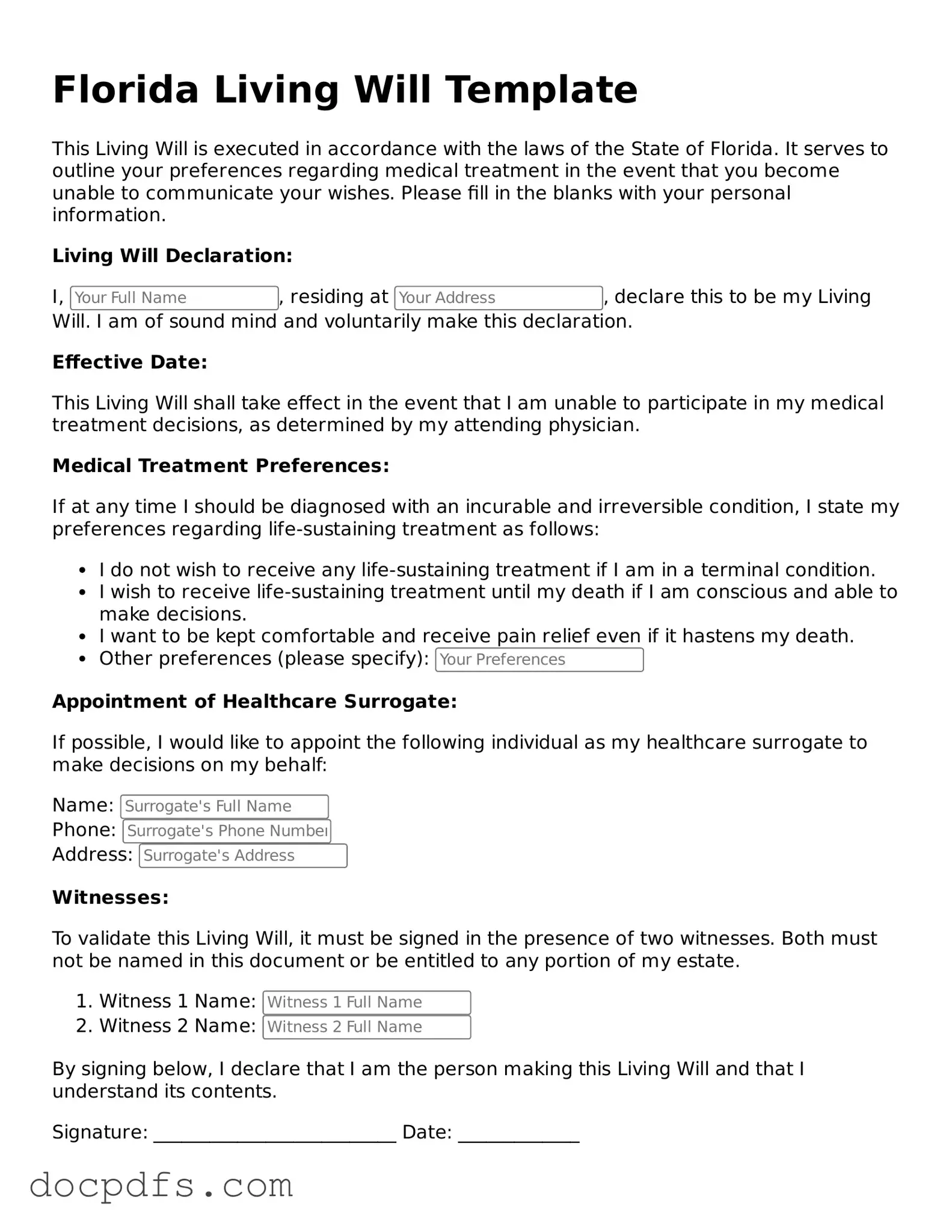What is a Florida Living Will?
A Florida Living Will is a legal document that outlines your preferences for medical treatment in case you become unable to communicate your wishes. It specifically addresses end-of-life care and the types of medical interventions you do or do not want, such as life support or resuscitation efforts.
Who should have a Living Will?
Anyone over the age of 18 should consider having a Living Will. It is especially important for individuals with serious health conditions, those undergoing major surgeries, or anyone who wants to ensure their medical wishes are respected in critical situations.
How do I create a Living Will in Florida?
Creating a Living Will in Florida involves a few straightforward steps:
-
Reflect on your medical treatment preferences.
-
Obtain a Florida Living Will form, which can be found online or through legal resources.
-
Complete the form by clearly stating your wishes.
-
Sign the document in the presence of two witnesses, who must also sign it. Note that these witnesses cannot be your spouse or blood relatives.
Can I change or revoke my Living Will?
Yes, you can change or revoke your Living Will at any time. To make changes, simply create a new Living Will that outlines your updated wishes. Make sure to notify your healthcare providers and any family members of the changes. Revoking can be done verbally or in writing, but it’s best to document it for clarity.
What happens if I don’t have a Living Will?
If you do not have a Living Will and become incapacitated, your healthcare providers will typically follow standard medical protocols. Decisions about your care may fall to family members or legal representatives, which can lead to disagreements and uncertainty about your wishes.
Is a Living Will the same as a Durable Power of Attorney for Healthcare?
No, a Living Will and a Durable Power of Attorney for Healthcare are different documents. A Living Will specifies your treatment preferences, while a Durable Power of Attorney designates someone to make healthcare decisions on your behalf if you are unable to do so. It’s advisable to have both documents for comprehensive healthcare planning.
Where should I keep my Living Will?
Store your Living Will in a safe but accessible place. Inform your family members, healthcare proxy, and doctors about its location. It’s also a good idea to carry a copy with you, especially when traveling or if you have ongoing health concerns.
Can I use a Living Will from another state in Florida?
Florida generally recognizes Living Wills created in other states as long as they comply with the laws of that state. However, to ensure your wishes are respected, it’s best to create a Florida Living Will that meets state requirements. This minimizes any potential confusion or legal issues regarding your healthcare preferences.

